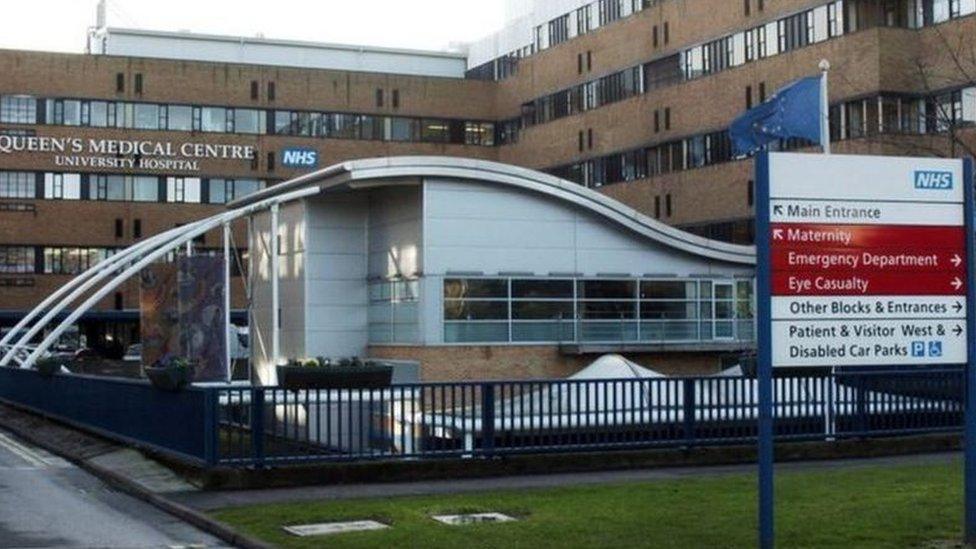Nottingham NHS trust 'told staff not to discuss bullying'
- Published
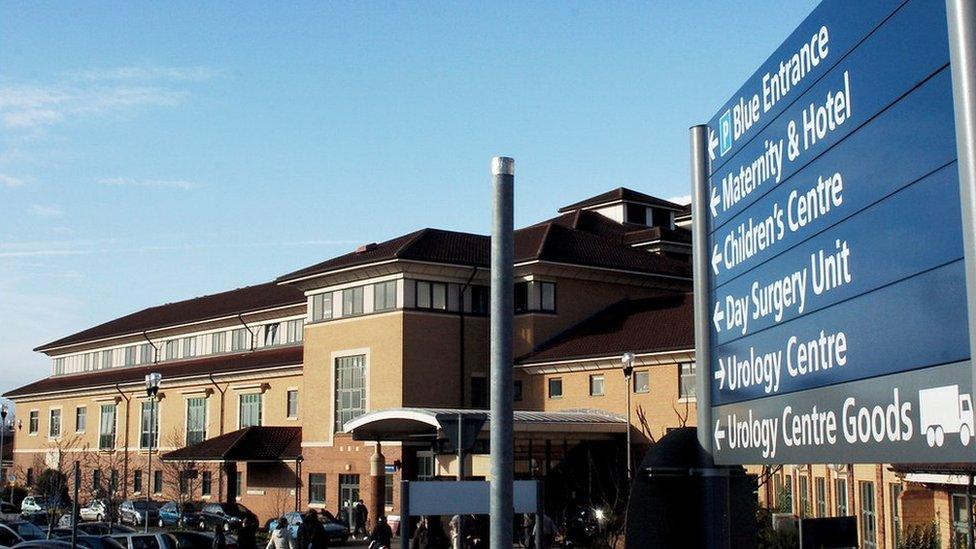
The CQC inspectors visited Nottingham's hospitals in 2021
A union says confidentiality clauses are being unfairly used at an NHS trust where bullying and discrimination were highlighted in a recent inspection.
Unison said Nottingham University Hospitals (NUH) Trust uses the clauses - which it says are effectively gagging orders - in settlement agreements.
The Care Quality Commission (CQC) said such clauses are unacceptable.
NUH said it had not used gagging clauses since 2013, when they were abolished nationally.
'Disparaging statements'
However Unison representative Dave Ratchford said the trust continued to operate "a standard approach" of using confidentiality clauses to stop employees discussing grievances after a settlement.
He said the clauses were essentially the same as non-disclosure agreements (NDAs) - so-called gagging clauses - and prevented "transparency and accountability".
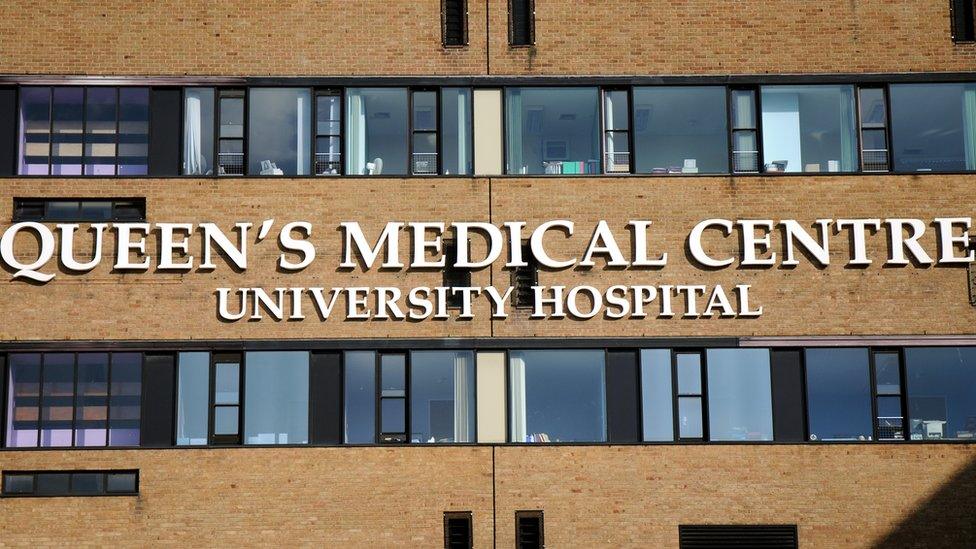
The QMC is one of two hospitals run by the trust
In agreements from 2020 and 2021, seen by the BBC, one NUH employee was told she could not "make or publish any disparaging statements about the employer" or anything that would bring NUH or senior staff into disrepute.
In another case, an employee was told not to disclose details of the settlement with anyone except their legal or professional advisers or immediate family.
The agreement also contained a clause requiring the employee not to make or publish any "derogatory remarks or statements regarding the respondent".
"Both of the above [cases] are clearly gagging clauses as we would recognise them," Mr Ratchford added.
"It's semantics to say there are no gagging clauses or separate NDAs but there are confidentiality clauses in bullying and discrimination cases.
"It is fully clear that it is a get-out-of-jail clause for a bullying culture, which is what the CQC found when they went there [last year]."
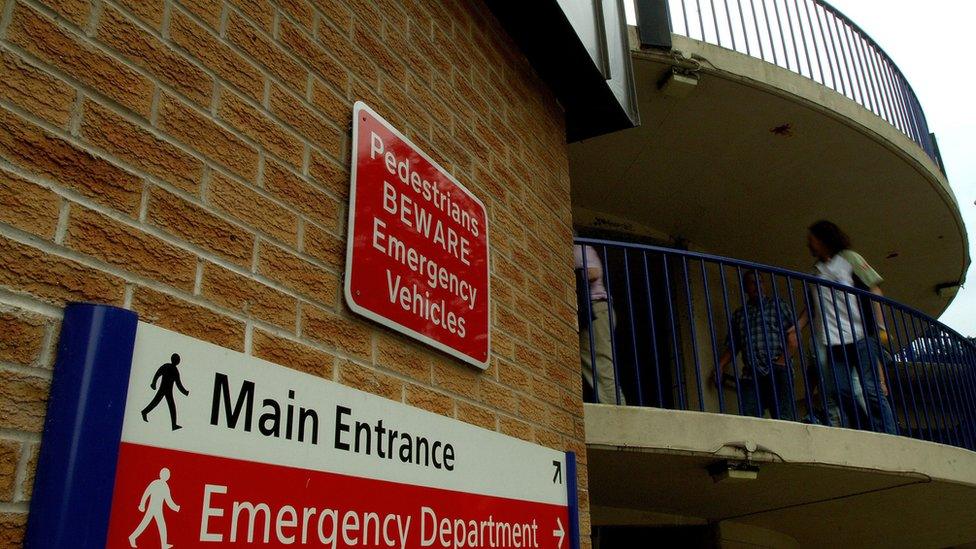
The trust says it has not used gagging clauses since 2013
Mr Ratchford added that, in the past two years, Unison had dealt with more race discrimination cases at the trust than any other employer in the East Midlands.
"It is a very serious situation and we have yet to see anything that has given us confidence they will resolve this," he said.
"If you are going to change a bullying culture, accountability has to be part of it.
"Without transparency there's no accountability and people can continue the same sort of behaviour they were getting away with before.
"NDA, gagging order, confidentiality clause - whatever you call it, the consequence is the same.
"The individual is told not to [talk] to anybody except family and legal representatives and don't pass on the information into the public domain.
"When you are talking about bullying or discrimination issues, what is the utility of confidentiality clauses?"

'The managers didn't care'
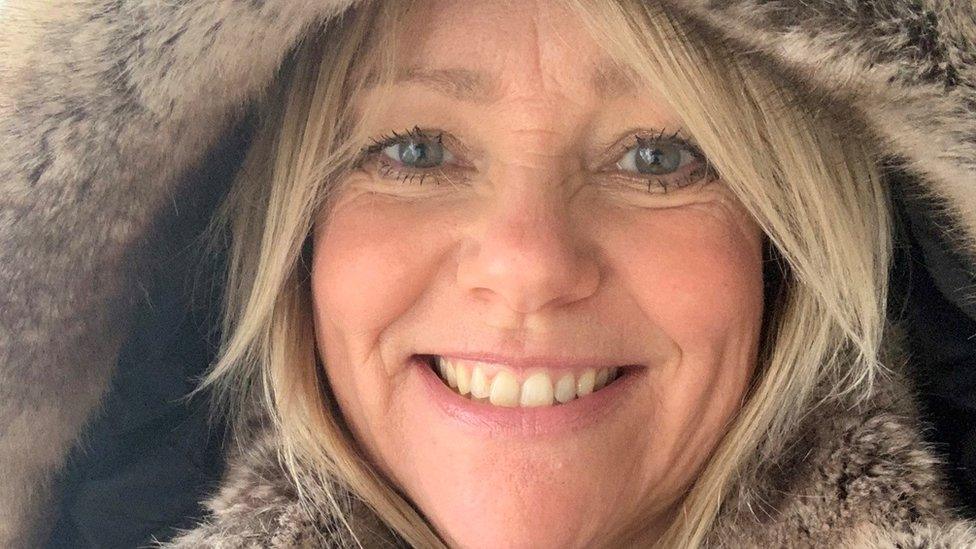
Nancy Mellors worked at the trust for two years before resigning
Nancy Mellors, 57, who lives in Ruddington, said she eventually resigned from her job at the Queen's Medical Centre (QMC) in 2021 because of bullying from a line manager.
"I was one of five people in our department that were being bullied," she said.
"I tried and tried to make things better and, in the end, I thought things aren't going to get any better."
Ms Mellors worked at the trust for two years and said she felt like the managers "didn't care about the patients".
She added most staff were too scared to report the bullying.
"[Bosses at the trust] refused to acknowledge that bullying exists despite all the evidence," she said.
A spokesman said they were working with the CQC to ensure current and former employees had their complaints of bullying, discrimination or unfair treatment at work investigated properly.
Dr Neil Pease, chief people officer and board member at the NUH Trust, said: "No-one in our organisation should experience bullying or discrimination of any sort and that is something we are committed to ending."
The trust said it was putting together a strategy to focus on areas that will "achieve the most impact and change for staff" and said it was working closely with staff groups to make it easier for employees to raise concerns and address the issue of bullying.

One staff member was told she could not "make or publish any disparaging statements about the employer"
The CQC report, published in September, external, told the trust it must take action to address bullying within the organisation but Elizabeth, who left her job in 2003, said the culture dated back decades.
Now aged 60, Elizabeth (not her real name) worked in the haematology department at the QMC for six years.
Today the hospital is run by NUH - a trust that was formed in 2006 from separate trusts that ran its two hospitals, the QMC and the Nottingham City Hospital.
"This has been going on for years and is by no means new," she said.
"I was often reduced to tears at work.
"I was singled out and made to feel worthless.
"I have never forgotten the trauma all these incidents caused me. We should be able to work in a safe environment surrounded by like-minded colleagues."
After raising her concerns about bullying and sexual harassment by a manger, Elizabeth found herself suspended and facing a internal hearing before she could return to work.
She showed evidence of the bullying and won her case, but she said she was able to get her old job back only "on the understanding I didn't go to the press or say anything to anybody".
"It was like they said 'this matter is closed and it stays in this room'," she said, adding it felt like a "gagging clause".
"At the time I had young children and I needed that job, so I stayed quiet, but I would drive to work crying and I drove home crying.
"And yet I loved the job that I did."
The trust said it was formed in 2006 so cannot comment on allegations of bullying and "gagging clauses" before this time.
Despite Elizabeth's experiences, the trust had - until 2021 - had a history of performing well during CQC inspections, having been ranked "good" in 2019.
It was previously praised for its vision and engagement with staff, patients and the public.

Ted Baker, the CQC's chief inspector of hospitals, said it was vital staff were able to speak up freely.
"It is not acceptable for NHS trusts to impose confidentiality agreements that restrict this information in any way," he said.
"All providers have a responsibility to support their staff to share concerns safely without fear of reprisal. Where we find that this is not happening, we will hold providers to account."
He added the CQC's inspection of NUH had identified a number of areas where the trust needed to take action to improve.
"[This included] action to address concerns around bullying and to ensure a more open culture where staff are fully supported to speak up," he said.
"We continue to monitor the trust closely to check on progress in addressing these issues."

Analysis
By Rob Sissons, BBC East Midlands Today health correspondent
The ongoing questions over 'gagging orders', 'whistle blowing' and 'confidentially clauses' has been pored over since the Mid Staffordshire Hospital Trust scandal in 2010, where the reputation of the trust was put ahead of patient safety.
These days, the NHS has processes in place for people to speak up if they fear patient safety is being compromised. But what about confidentiality clauses?
Nottinghamshire's hospital trust says 30 other trusts across the country also use them and they are required to protect both parties. People are expected to take legal advice before signing them.
However critics argue that just because public and private organisations use them, it doesn't necessarily make it the right way to go about things.

NUH has denied it issues gagging clauses and said it has not done so since 2013, when they were abolished by the NHS nationally.
A spokesman said instead new policies had been implemented which offered confidentiality to both parties during an investigation and a mediation process when a complaint is made.
He added the trust had adopted a new "resolution of concerns policy" which was agreed by union representatives and did not prevent employees from seeking procedural or emotional support but did ask that concerns were kept confidential and not made public until an outcome was reached.

Follow BBC East Midlands on Facebook, external, Twitter, external, or Instagram, external. Send your story ideas to eastmidsnews@bbc.co.uk, external.
Related topics
- Published15 September 2021

- Published15 July 2021
